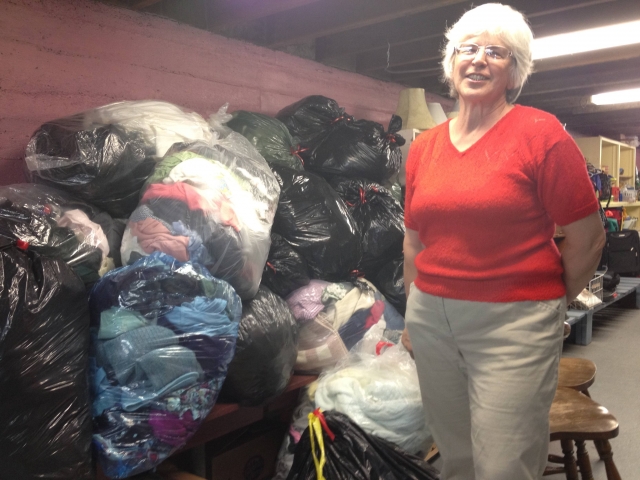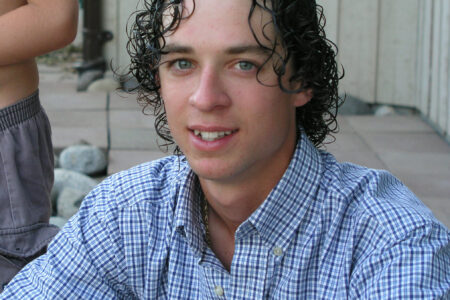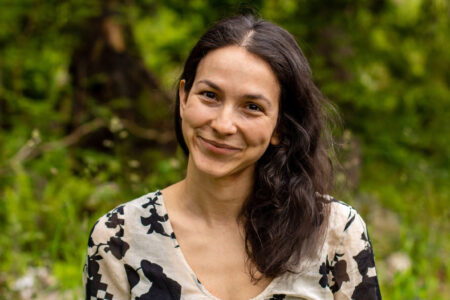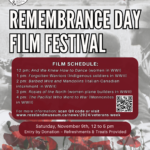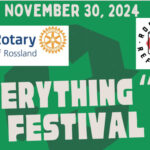Thrift Store finds new uses for junky donations
The volunteers who run the Thrift Store have recently forged new partnerships to re-purpose about three-quarters of the junk “donations” that used to end up in the dumpster out back, but the Thrift Store ladies still have a few simple guidelines for donors to help make the job easier.
Before now the Thrift Store could only accept clean clothing in good repair. All the other “donations”—ripped, torn, de-buttoned, disfigured, dirty, smelly, stained clothing—were sorted out by volunteers and put in the dump.
Now the Thrift Store has established a relationship with a group in Nelson who take these lower quality items to Vancouver.
“Some goes to third world countries, some goes to another company that reuses it,” said volunteer Angie, excited about the new avenue for reuse. “Just leave it in a bag with ‘Nelson’ written on it,” Angie said. “We’ll hang onto it and once there’s enough, we get a pick-up from Nelson.”
(Note, however, that if donors don’t pre-sort the ‘Nelson’ items into a separate bag, the task is left for volunteer sorters.)
Angie said donors’ ‘Nelson’ bags can also take “shoes that are still in good condition, that can still be worn, and stuff that’s stained or not in fashion.”
Joan Hansen, another volunteer, explained that a colour-coding system tells volunteers how long an item has been on display. “If stuff is out for six weeks and didn’t sell, we take it down.”
Items that are 100 per cent cotton have always gone to a special group of volunteers who gather for what Hansen calls a “rag cutting party.” The results are sold as bags o’ rags in the store.
Volunteers Scott and Irene Leyland take the rest of the cast-offs, distributing them to another tier of new uses elsewhere. The couple began dealing with the Thrift Store’s leavings in the early 1990s and their service is still “a growing thing, evolving,” Irene said, “with so many streams going to different places.”
“There’s lots of good stuff in there still,” Irene explained, adding a pledge of allegiance to the Three R’s—reduce, reuse, recycle. “I’m the beginning of the next second life,” she said. “[The Thrift Store volunteers] decide what goes out, and I come in after they do all the sorting.”
Linda Cant, vice president of the Rossland Health Care Auxiliary Society—for which the Thrift Store is the prime fundraiser—wanted to be clear: “We really appreciate all the wonderful things people do give us,” she said. “We would just like people to be a little more discretionary about what they’re giving us.”
Hansen concurred: “We get wonderful stuff—ironed, folded, beautiful stuff,” she said. “But some people give us junk, and some of it smells!”
Angie wrinkled her nose and said such stuff used to go straight to the dumpster. “Now it goes straight to Vancouver, we don’t even look at it,” she said. “We try to put as little as possible in the dumpster.”
Patricia Piper, secretary of the society, agreed. “It’s really nice we got the opportunity [with the group from Nelson.] We hate putting stuff in the dumpster that we could possibly use.”
Nevertheless, a lot of volunteer time could be saved if donors were a little more conscientious.
“If you wouldn’t use it yourself, don’t give it to us,” Cant offered as a rule of thumb. For example, a teflon frying pan with the teflon peeling off is no use to the Thrift Store, she said, and should go straight to metal recycling.
But despite a clear rule against “junk,” the Leylands often deal with recycling too, separating out about one third to one half of all the items they deal with, according to Irene, before finding new uses for the rest.
Unfortunately, for all the volunteers’ good work, their woes don’t end with garbage and recyclables mixed into the donations. Sometimes, as happened two weeks ago, customers ignore signs that forbid entry, or tear open bags intended for the Nelson group or the Leylands.
“It was absolutely horrible,” Hansen said.
At about the same time the bags of not-for-sale items were torn and dumped, $40 was stolen from the purse of one volunteer.
“It was in the back area where no one is supposed to go,” the volunteer said. “There are certain areas people should not go, and there are signs all over telling them where they can go.”
“Workers here work hard,” Piper said, motioning around the store as more than a dozen dedicated volunteers worked diligently to sort donations.
Piper’s message was crystal clear: they’re happy to do the work, but they shouldn’t have to work harder because someone was too lazy to deal with their trash or follow the rules.


